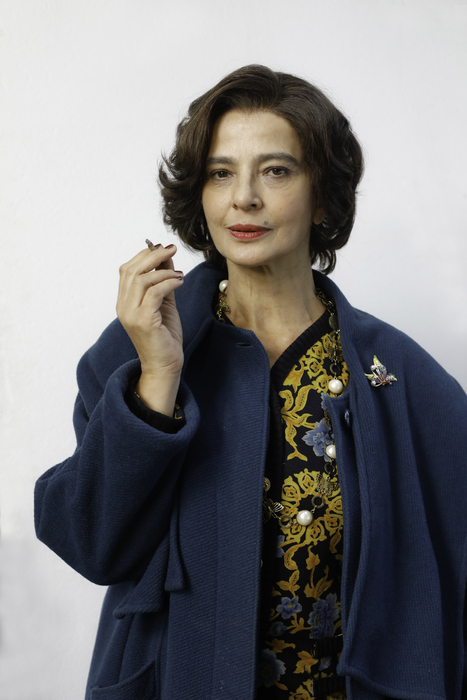"I have enjoyed life to the full because I also like the hell of life and life is often hell. For me, life has been beautiful because I paid dearly for it."
Folle d'amore tells the life of the poet Alda Merini: from youth to mental distress, to marriages, to motherhood, from impossible loves to access to culture and fame.
The biography of the "poet of the Navigli" is produced by Jean Vigo Italia and Rai Fiction and will be broadcast on Rai1 on 14 March directed by Roberto Faenza.
Filmed in Turin with the support of Fctp, the film tells the human story with intensity and delicate participation.
And of the three faces of Alda Merini portrayed, Laura Morante personifies that of maturity and illness, Folle d'amore is a TV film presented today, at the Rai headquarters in Viale Mazzini in the presence of Maria Pia Ammirati, director of Rai Fiction;
of the director and the cast starting with Laura Morante flanked by Federico Cesari (Arnoldo Mosca Mondadori), Rosa Diletta Rossi (Merini as a teenager), Giorgio Marchesi (Dr. Giorgio Gabrici who Merini calls Doctor G).
Alda Merini met Eugenio Montale and Salvatore Quasimodo, - recalls Ammirati - It was a duty for us to illuminate a great artist and a great woman". The conversation between the poetess of the canals and a young Arnoldo Mondadori (Federico Cesari) is the pivot around which the entire narrative structure gravitates: moving from one flashback to another, Faenza shows Merini both young and already at an advanced age who, with the cigarette always in hand, her nails painted, gives herself away to the public, letting every aspect of her personality shine through. Arnoldo Mosca Mondadori: "Faenza has created a masterpiece.
I had to be careful to look after Alda.
She is always present: coming here I realized that Alda was madly in love, but for her daughters I remember myself with her in her room at her house where I went every day.
Faenza made a film that is a hymn to life". With attention to every detail even in his apartment in Ripa di Porta Ticinese, on the Navigli, in Milan, with the door always open, to friends, Alda, cigarette always lit, a great chaos around. She, among her things, tells Arnoldo about her poetry and her life. We go back in time and then to the last years. Faenza: "Alda is a character who still lives in the hearts of the people, especially of young people, many of whom are interested in her, as if she were a lighthouse guiding them". "In interviews she has flashes of intelligence and acumen, and then other times it is as if the voice that speaks to her when she writes is silent", says Morante explaining her approach to the figure of the poet. The actress did not deny that she was initially worried about the responsibility of taking on the role of Alda Merini: "At the beginning I was a little afraid, not only because she is a real character but because everyone remember, he was very present on TV,
with his interviews.
Roberto Faenza told me 'I'm not looking for an imitation but an interpretation' and then one thing that struck me on TV was that he had a particular way of speaking, as if he was always listening to a voice.
I tried to evoke her more than imitate her". "She is a strange and wonderful character at the same time". In a dialogue with a young Arnoldo Mosca Mondadori, who was close to her for years, Alda Merini retraces her life. The publications from very young, her first loves, the mental suffering that took her to a mental hospital several times, until she met Doctor G (the psychiatrist Enzo Gabrici who treated her helped Alda defeat her ghosts and get out of the mental hospital interpreted by Giorgio Marchesi), who gives her a typewriter and pushes her to write again. It is also from that oblivion that immortal words are born. Love and revenge, spirituality, the madness of the marginalized. Themes which director Roberto Faenza tried to transpose onto the screen. "She was always portrayed as a sick woman, when in fact she was a woman full of creativity" "She just had the misfortune as a young girl to be thought of as crazy, yet she wasn't ". Laura Morante reads a poem dedicated by Merini to Franco Basaglia (whose centenary is this year): "...How we were in love/over there in the mental hospitals/when we hoped one day/to flourish again/but the thing more unheard of, you think,/was when we discovered/that we had never been sick."
She is an ironic, dreamy and stubborn woman from a young age.
A poet who knew how to make her words the voice of all.
Reproduction reserved © Copyright ANSA

